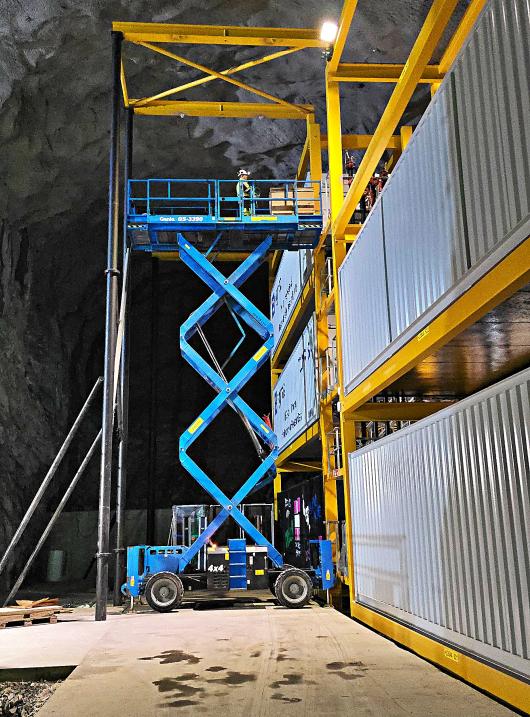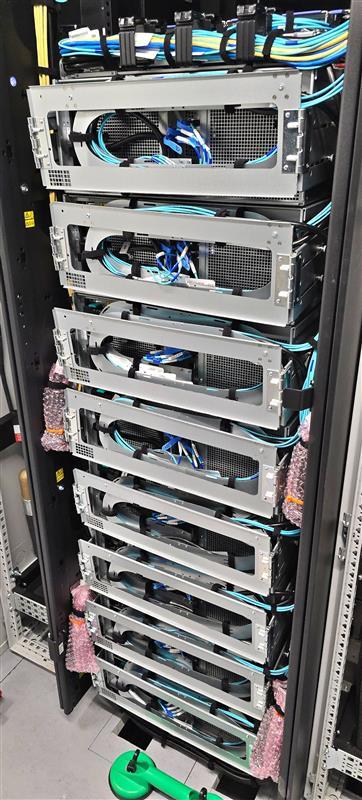We are committed to continually enhancing our storage infrastructure to meet the growing needs of Norwegian researchers.
We are therefore excited to announce the expansion of NIRD, the National Infrastructure for Research Data, a year after its last upgrade. This time, we're adding a staggering 13 petabytes (PB) of net storage to the NIRD Data Lake, marking a significant milestone in our journey towards providing superior data storage solutions.


We see a significant demand for storage resources on the NIRD Data Lake and an increased need for object storage and data access via the S3 protocol.
As part of the expansion, we have also done several upgrades under the hood to ensure that the brilliant stability of NIRD is maintained, security-enhanced and new performance-related tunings are made available.
Hoisting hundreds of kilos of equipment up to the Data Lake container required a scissor lift. The Lefdal Mine Data Centers crew handled this task with confidence and precision.
The new rack, provided by IBM, arrived with pre-installed disk enclosures. However, the disks themselves were a separate delivery - over 800 of them, each with a capacity of 22 terabytes (TB), all packed in cardboard boxes across four Euro pallets. This represents an unprecedented data storage density per square metre within a single rack.
Previously, our NIRD Data Lake container had one pod with space for four racks. With this expansion, we've added a new pod to accommodate the new rack, leaving room for three more racks for future expansions.
Our experience with NIRD in containers has been overwhelmingly positive. We've seen excellent operational reliability, low disk failure rates, and exceptional physical security, including robust EMP protection
It wasn't long ago when 1 TB disks were considered impressive. Now, we're dealing with 22 TB disks. Today, this is what we call impressive.